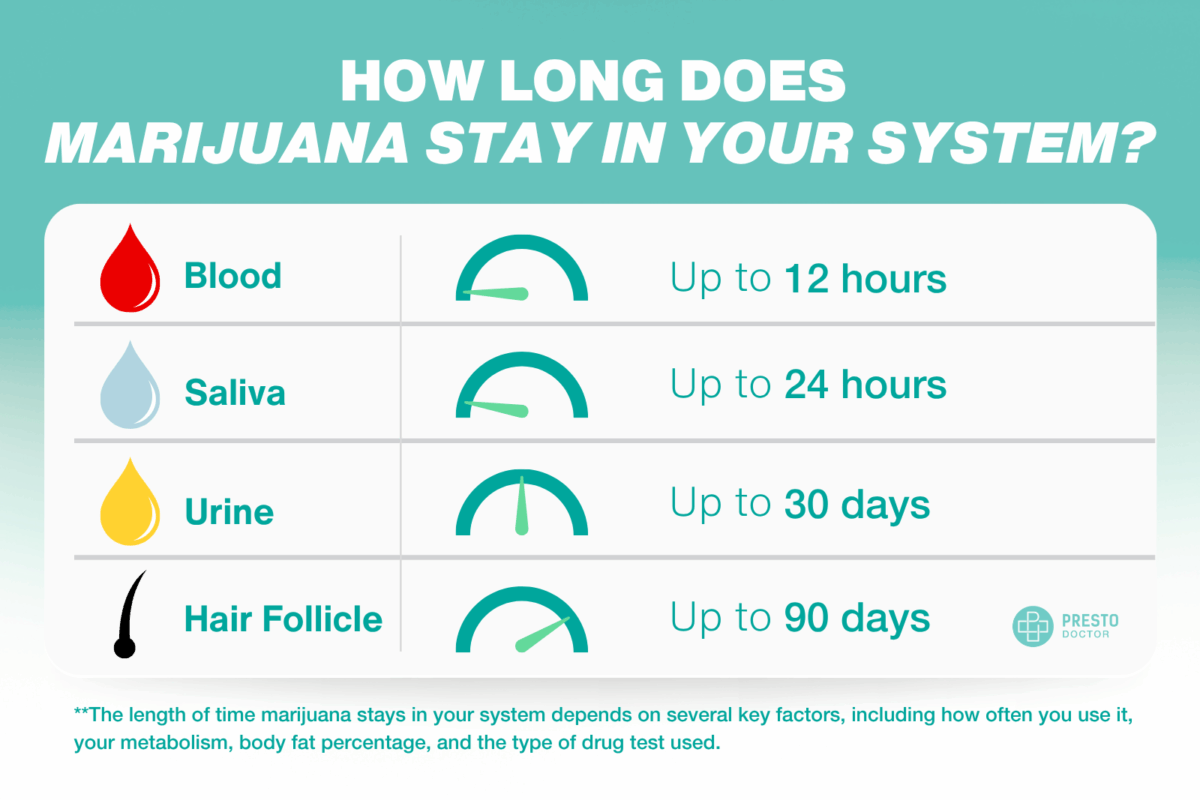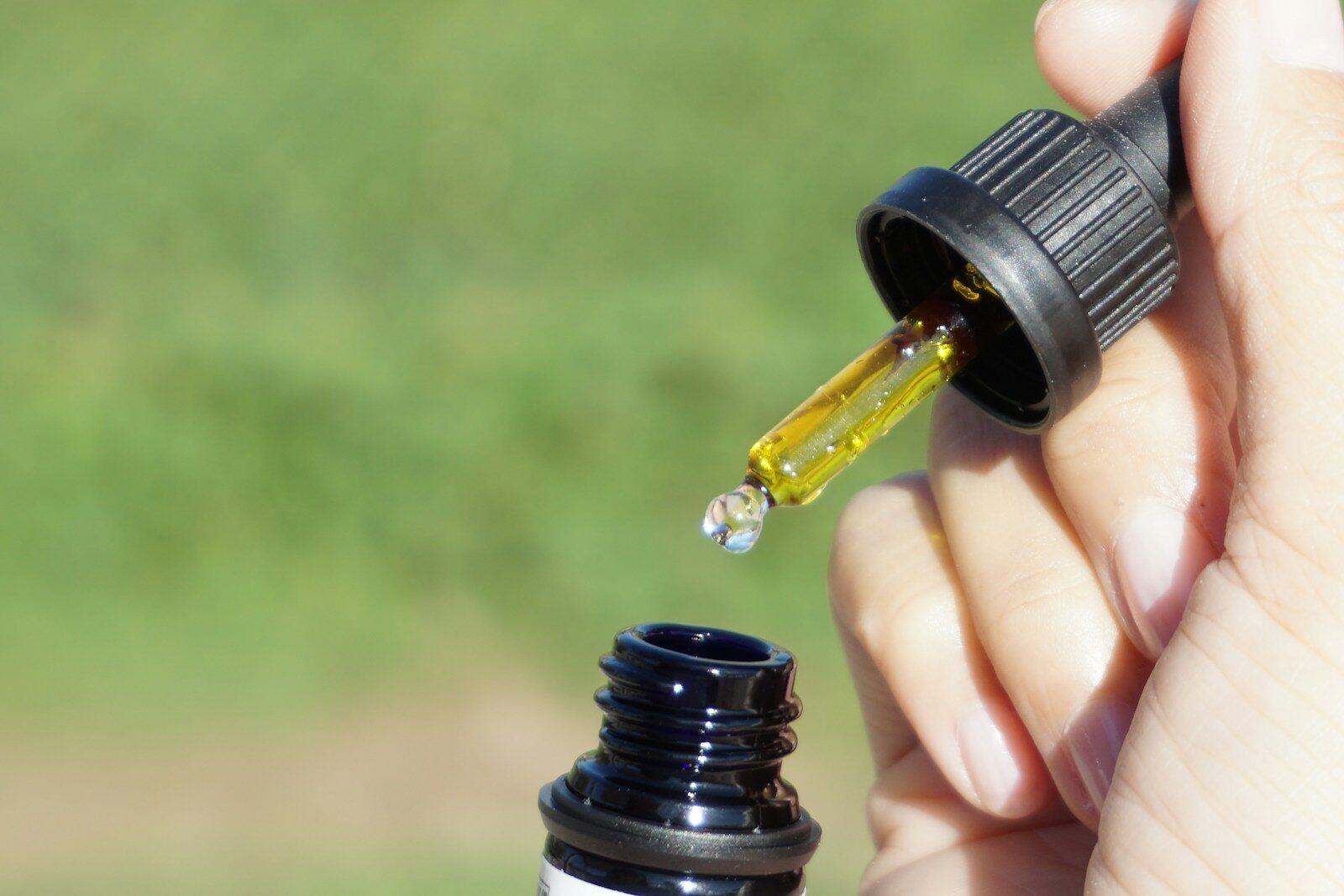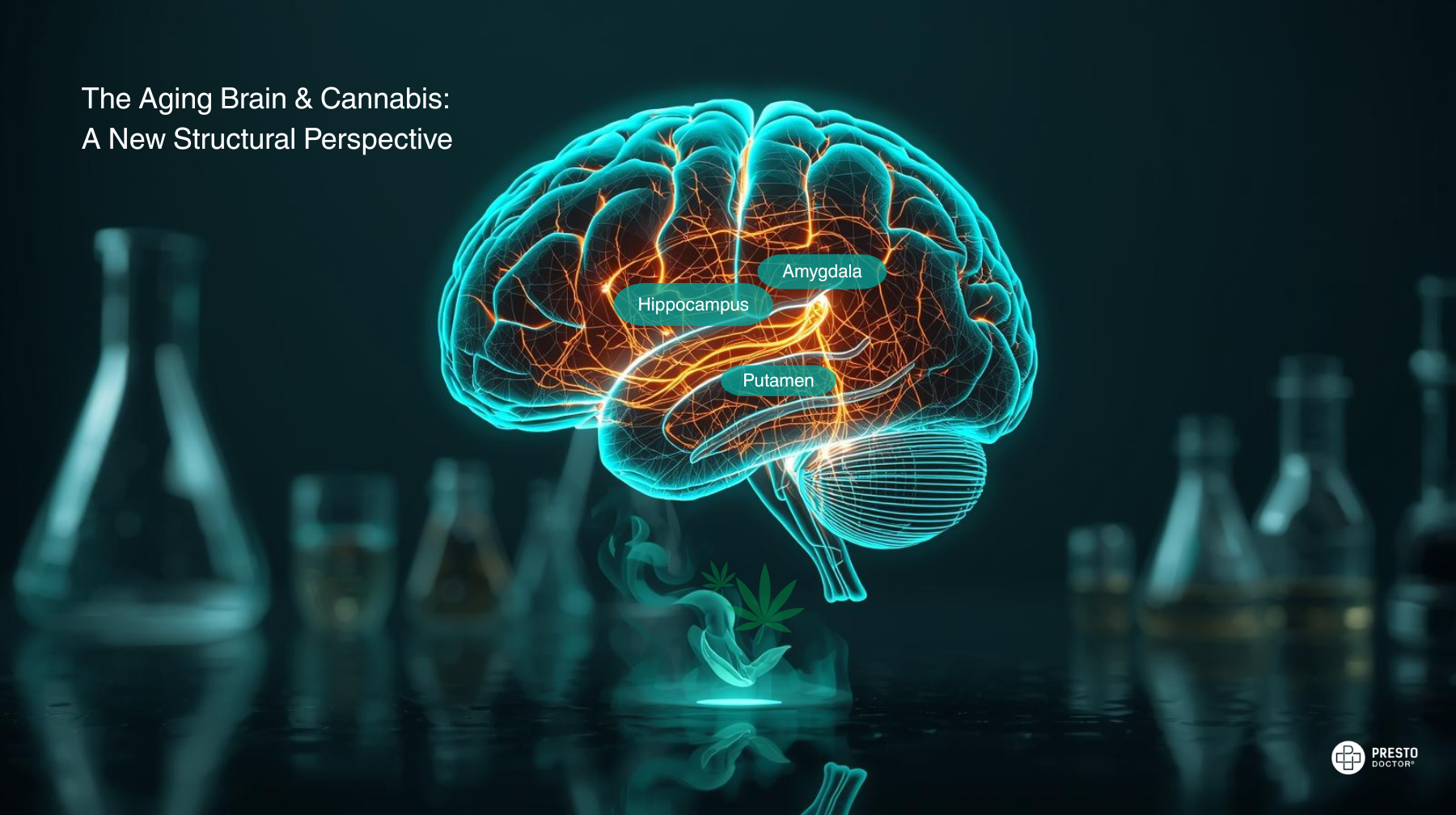
Introduction
Whether you’re preparing for a drug test or want to better understand how marijuana affects your body, knowing how long weed stays in your system is essential to know how long THC detection times last and the test type. Many factors go into how marijuana affects your body, including your metabolism, frequency of use, and body fat percentage. This guide explains how cannabis is processed, how long it remains detectable, what you can do to support your body’s natural way of THC detox, and preparation in case you have a drug test for marijuana.
How Long Does Marijuana Stay in Your System?
The length of time weed stays in your system depends on several key factors, including how often you use it, your metabolism, body fat percentage, and the type of drug test used. THC metabolites can remain in the body long after the high wears off, especially for frequent users.
THC Detection Windows by Drug Test Type
Understanding THC detection times by test type is critical since each method—urine, saliva, blood, or hair—has different thresholds and detection periods.
Overview: How Long Weed Stays in Your System
- Urine tests: Up to 3 days (occasional use), 30+ days (heavy use)
- Blood tests: 1–2 days typical, up to 7+ in frequent users
- Saliva tests: 24–72 hours after use
- Hair tests: Up to 90 days
| Test Type | Detection Window (Occasional Use) | Detection Window (Frequent Use) |
|---|---|---|
| Urine Test | 1–3 days | 7–30+ days |
| Blood Test | 1–2 days | 3–7 days |
| Saliva Test | Up to 24 hours | 1–3 days |
| Hair Test | Up to 90 days | Up to 90 days |
Saliva vs Blood Tests: What’s the Difference?
While both saliva and blood tests can detect recent cannabis use, they serve different purposes and have varying sensitivity:
- Saliva tests are typically used in roadside or workplace settings to detect very recent use, often within a few hours up to 1–3 days. THC enters the oral cavity during inhalation and remains in saliva temporarily. These tests are fast, non-invasive, and increasingly used for on-the-spot screenings.
- Blood tests are more invasive but provide a more precise picture of current intoxication. THC in blood usually becomes undetectable within 1–2 days in occasional users, but heavy or chronic users may test positive for up to a week. Blood tests measure active THC, not just metabolites, and are common in post-accident or legal scenarios.
What Influences THC Detection Time?
- Frequency of Use: THC builds up in fat cells, so regular users retain it longer.
- THC Content: Higher potency cannabis increases detection windows.
- Body Fat: THC is fat-soluble and stored in adipose tissue.
- Metabolism: A faster metabolism may process and eliminate THC more efficiently.
- Hydration: Staying hydrated supports kidney function and detox pathways.
Marijuana metabolism and body fat are closely linked; THC is stored in fat cells and metabolized at different rates depending on your body composition.
Can THC Show Up Weeks After Use?
Yes, especially in heavy or chronic users. THC metabolites like THC-COOH can linger in the body’s fat stores for weeks and be gradually released into the bloodstream. This is why some people test positive even after long abstinence.
How THC is Processed in the Body
After marijuana is consumed, THC is absorbed into the bloodstream and processed by the liver, where it is broken down into various metabolites, including THC-COOH. These byproducts are stored in fat stores and slowly released, making them detectable in drug tests even after the effects wear off.
How to Prepare for a Drug Test
Successful drug test preparation for marijuana involves understanding your own detox timeline and taking proactive steps to minimize THC levels in your body. If you are facing a drug test, consider the following tips to improve your chances of testing clean:
- Stop marijuana consumption immediately.
- Drink water consistently to stay hydrated (don’t overdo it before the test).
- Exercise regularly to support fat metabolism (avoid just before the test).
- Eat a balanced diet to support liver function and detox pathways.
- Get adequate sleep to support overall metabolic health.
Common Myths About THC Detox
- ❌ Myth: Cranberry juice instantly clears THC — Fact: No evidence supports this.
- ❌ Myth: Niacin burns THC from your fat — Fact: Can be harmful and ineffective.
- ❌ Myth: Detox kits always work — Fact: Most are unregulated and unreliable.
Does Detox Tea Work for Drug Tests?
Detox teas claim to flush THC from the body, but there’s little scientific evidence proving their effectiveness. Many contain diuretics that only dilute urine temporarily. Labs may detect this dilution, leading to flagged or inconclusive results.
THC Detox: What Actually Works?
Many people search for how to detox THC naturally, and while no method is foolproof, supporting your body with time, water, and good health habits is the most effective approach.
- ✅ Time: The most reliable detox method is abstaining and waiting.
- ✅ Hydration: Helps your kidneys and liver eliminate toxins.
- ✅ Physical Activity: Supports metabolism but avoid intense activity right before a test.
- ✅ Diet & Sleep: Both help optimize detox pathways and hormonal balance.
Conclusion
Understanding how long marijuana stays in your system is crucial if you’re anticipating a drug test or simply want to monitor your health. Factors like body fat, marijuana metabolism, and consumption method all play a role. While there’s no quick fix to remove THC metabolites, a combination of hydration, healthy habits, and abstinence is your best approach.
FAQs
- How long does weed stay in your urine? Occasional use: 1–3 days; Frequent use: up to 30 days.
- Can secondhand smoke cause a failed test? Extremely rare and unlikely unless in a sealed room.
- Do edibles show up on a drug test? Yes — THC metabolites are detected regardless of the method.
- Is marijuana addictive? For some users, yes — especially with chronic, daily use.
- Are there reliable detox kits? Most are not proven effective and can be unsafe. Time remains the most effective detox.






